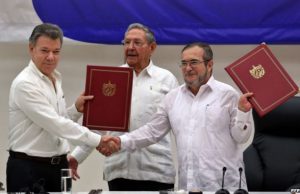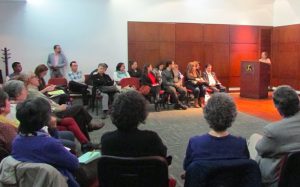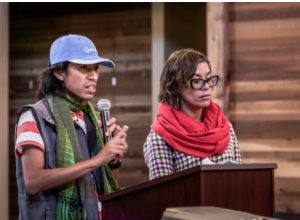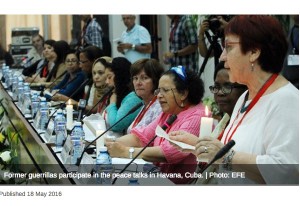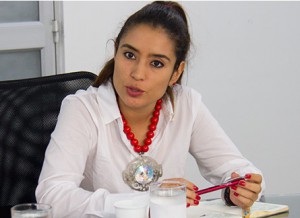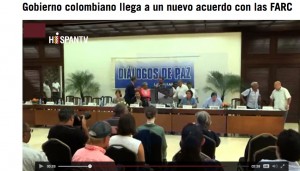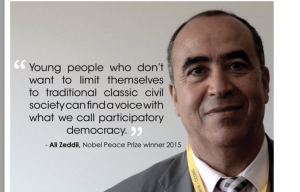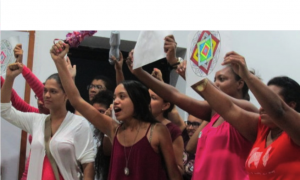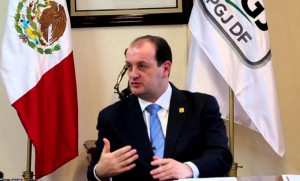FREE FLOW OF INFORMATION
At CPNN we have received numerous statements welcoming the recent ceasefire in Colombia. Here are some of them.
Ban Ki-Moon, Secretary-General of the United Nations:
“Today the Colombian peace process validates the perseverance of all those around the world who work to end violent conflict not through the destruction of the adversary, but through the patient search for compromise,”
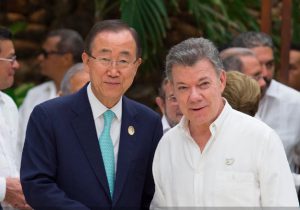
Secretary-General Ban Ki-moon with Juan Manuel Santos Calderón, President of Colombia, at the ceremony in Havana for the signing of a ceasefire
(click on photo to enlarge)
Amada Benavides, FUNDACIÓN ESCUELAS DE PAZ, Colombia:
Today at 12:39 when President Santos and the FARC leader signed the agreement, all of us, our partners and myself, only can to cry. After 60 years of war, we not really believe what it happened in that moment. Many of us never think in could seeing this moment.
At night, we had a workshop about WOMEN, DIVERSITY AND PEACE and the feeling turned between hope, fear and anxiety. Hope for the possibilities the agreement has. Fear for many populations is not yet convinced in the benefits of peace; and anxiety for all the work we have in this moment.
Peacebuilding moment starts just now. Today we need more support than ever.
Thanks for your words and solidarity.
PEACE NOW…. PEACE EDUCATION THE WAY.
(Continued in right column)
What is happening in Colombia, Is peace possible?
(Continued from left column)
Michelle Bachelet, President of Chile:
“El poder llegar a esta etapa, de este nivel de acuerdo, que significa el fin del conflicto armado, a la definición de un cronograma muy claro de cómo se va a implementar este proceso y asegurar que los colombianos puedan vivir por primera vez en paz, creo que es algo realmente histórico.”
(CPNN translation: “The ability to reach this stage, this level of agreement, which means the end of the armed conflict, defining a very clear timetable of how to implement this process and ensure that Colombians can live for the first time in peace, I think it is something truly historic ”
Kofi Annan, Chair of The Elders:
“We are encouraged by the work so far accomplished in Havana and by the perseverance of both parties in moving the peace process towards a successful conclusion. We commend the important roles that Norway and Cuba are playing as guarantors and Chile and Venezuela as accompanying countries, as well as the US. We also welcome the role a United Nations political mission will play in providing independent and credible international verification of the ceasefire.”
Ernesto Zedillo, member of The Elders:
“Colombia is on the cusp of reaching an historic agreement. The Colombian people deserve peace and I sincerely hope they will seize this opportunity to end the violence they have lived through for generations, to bring redress for millions of victims, and to bring real opportunities to the people of the regions most affected by conflict. Peace is not an event but a process. It must be a national project, bringing together all Colombian patriots in an inclusive fashion, across political rifts, to have a respectful debate when they vote on the agreements and to ensure they are fully implemented.”
